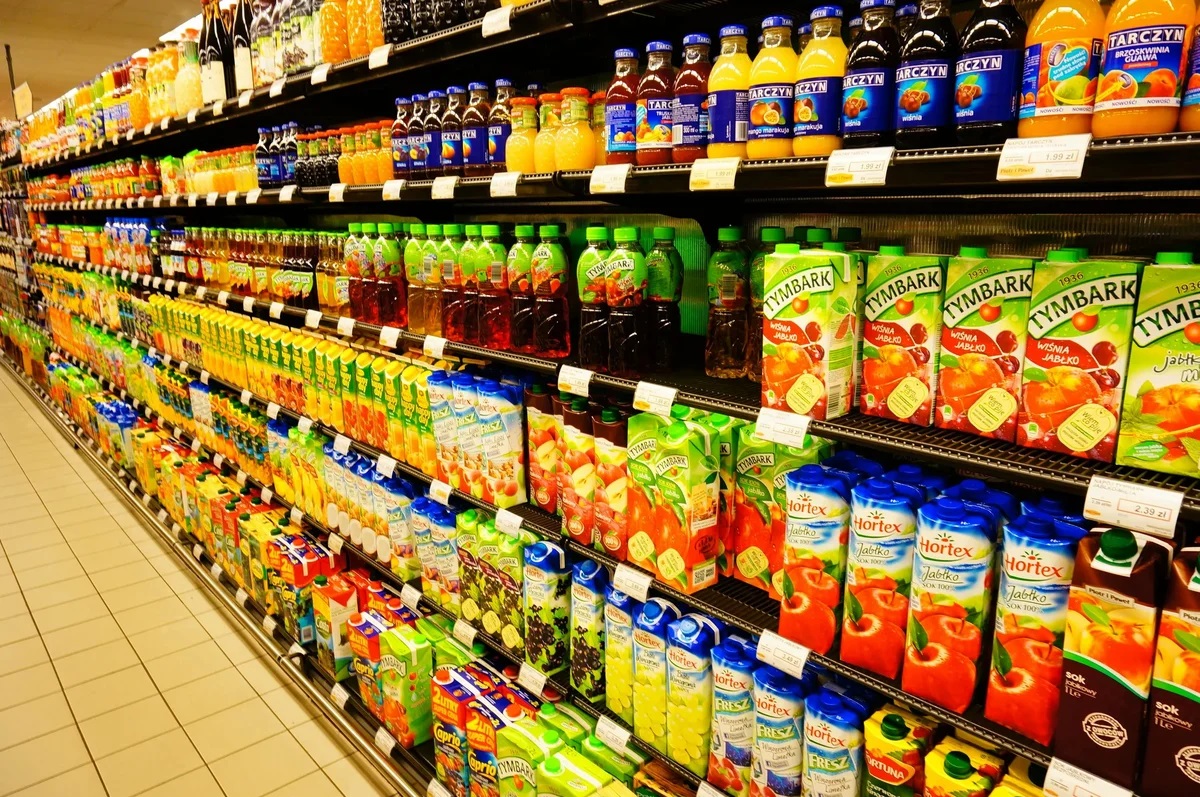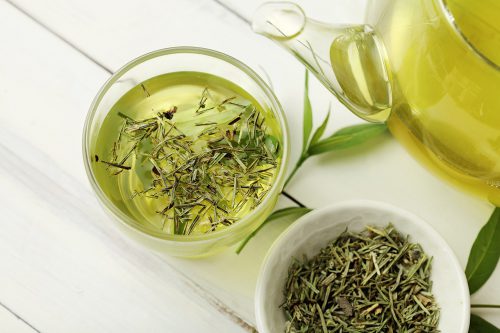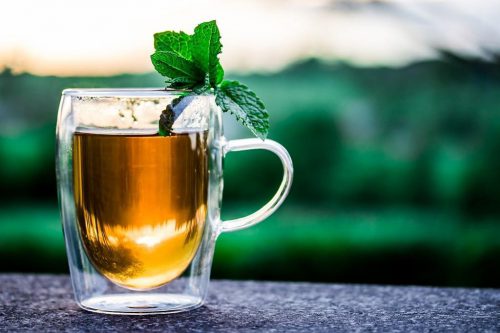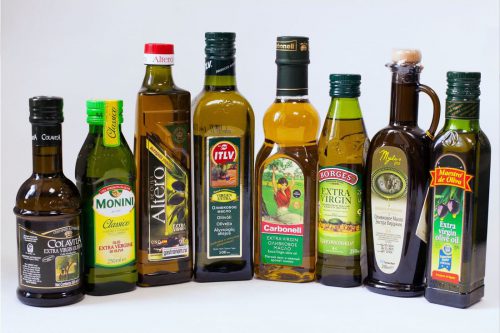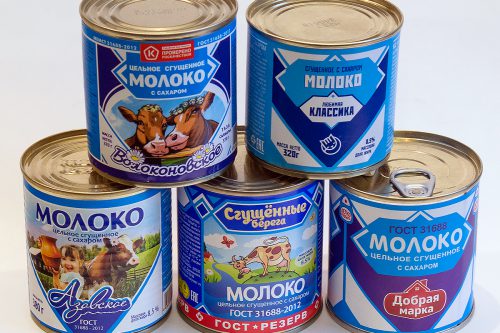Juice is the most popular non-alcoholic beverage in Russia. This is the reason for the presence of a huge number of brands and varieties of this refreshing drink on the shelves of our stores. Read about how not to fall for the tricks of unscrupulous manufacturers and buy a really high-quality product in the review below. We have collected only the best brands of juices, which were identified in the course of independent laboratory research "Test Purchase" and "Roskontrol".
Content
- 1 The best juice producers
- 1.1 "Santal" (apple) - the winner of the "Test purchase"
- 1.2 "Auchan" (grape) - the first line in the rating "Roskontrol"
- 1.3 "Sady Pridonya" (apple) - a favorite of the national jury
- 1.4 "J7" (apple) - undeservedly dropped out in the qualifying round of the "Test Purchase"
- 1.5 "Globus" (grape) - second place in the research "Roskontrol"
- 1.6 Natur Pur (grape) - closes the top three in the Roskontrol rating
- 1.7 "Lucky" (apple) - the best price / quality ratio
- 1.8 "Rich" (grape) is a safe product
- 1.9 "I" (orange) - product with comments
- 1.10 "ABC" (tomato) - contains salt
- 1.11 "Every day" (tomato) - sugar free
- 2 Juice selection criteria
The best juice producers
"Santal" (apple) - the winner of the "Test purchase"
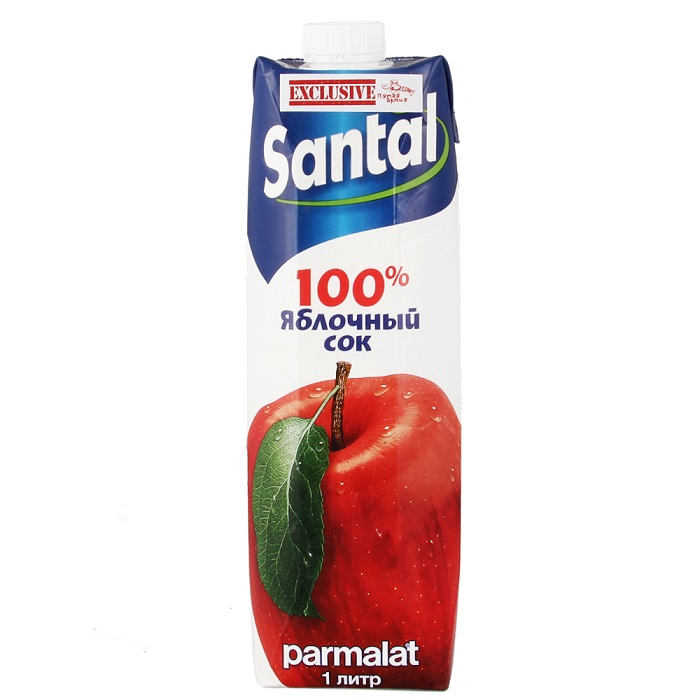
The sample "Santal" (apple) was not only highly appreciated by national tasters, but also received positive results based on the results of laboratory testing. The jury noted the natural fragrant apple aroma during the tasting of the drink.
The examination found that Santal (apple) contains no preservatives, flavors or other artificial food additives. At the final stage of the competition, experts measured the mass fraction of soluble solids in the samples (the actual content of natural elements). The best result was shown by “Santal” (apple), which confidently gives the right to assert about the good quality of the raw materials from which this product is made.
| Volume, l | 1 |
| price, rub. | 85 |
- microbiological safety standards are met;
- conforms to the standard;
- no inconsistencies in the labeling were found.
- absent.
"Auchan" (grape) - the first line in the rating of "Roskontrol"
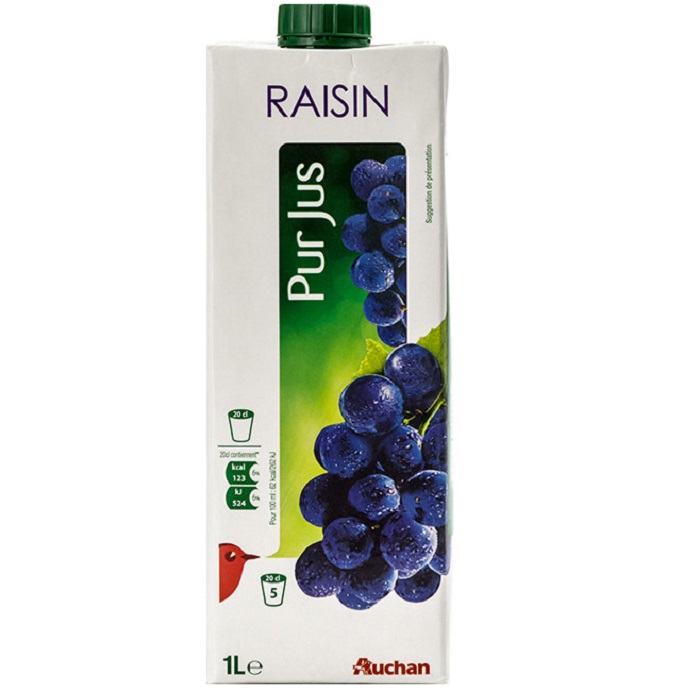
The leader of the independent research "Auchan" (grape) scored the maximum number of points in terms of safety, naturalness and nutritional value of the product. The experts did not reveal any discrepancies between the actual values and the indicators indicated in the labeling.
The composition contains components that match the properties of red grapes or genuine products of its processing. The composition of specific components coincides with the composition of red grapes and natural (genuine) products of its processing. Carbohydrates and organoleptic acids correspond to the name "grape juice".
| Volume, l | 1 |
| price, rub. | 89 |
- made from natural red grapes or products of its processing;
- high organoleptic properties;
- no preservatives.
- not found.
"Sady Pridonya" (apple) - a favorite of the national jury
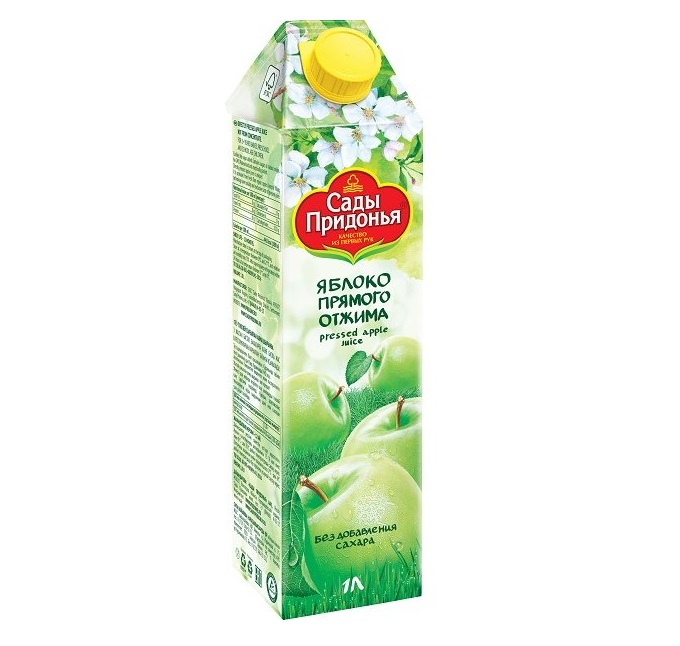
The buyers noted the pleasant smell, as well as the amber color of Sady Pridonya (apple), corresponding to natural apple juice.According to the results of an independent study by Roskontrol, this sample was included in the top three, having received one remark - a very low content of ascorbic acid. Otherwise, the competitor fully meets the safety requirements, and also has a high content of soluble solids (in comparison with the average values for this product category), which, together with high organoleptic properties, brought the competitor to the second line of the independent rating.
| Volume, l | 1 |
| price, rub. | 56 |
- safe;
- high content of fruit elements;
- insufficient amount of vitamin C.
"J7" (apple) - undeservedly dropped out in the qualifying round of the "Test Purchase"
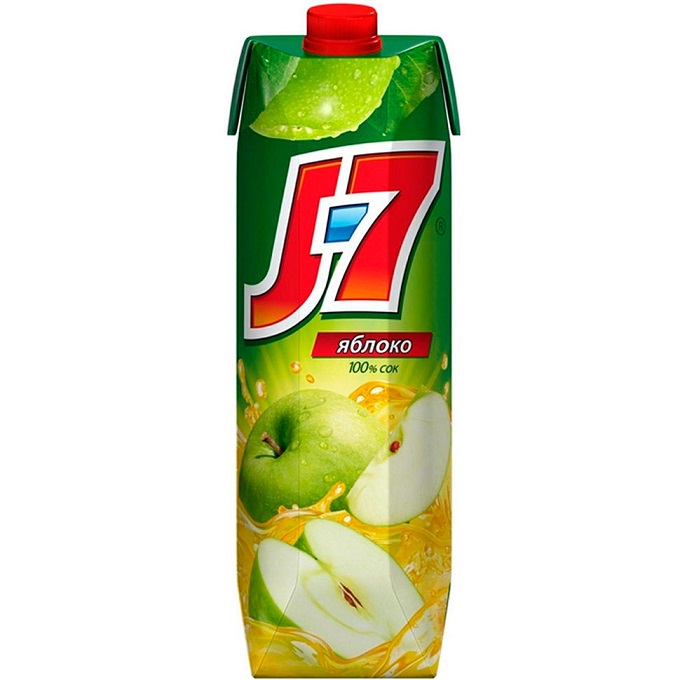
The sample under the trade mark "J7" did not like the people's tasters and could not continue their participation in the competition. The jury questioned the freshness of the drink, noting some fermentation flavor and lack of richness. However, this assumption was dispelled by TV show experts. It was established by laboratory that "J7" "(apple) fully complies with all the requirements of the standard and safety and could have competed for the title of the winner if it had not been eliminated in the qualifying round.
| Volume, l | 1 |
| price, rub. | 91 |
- compliance with the interstate standard for reconstituted juices (GOST 32103-2013);
- nitrates and impurities were not found;
- does not contain salts of sorbic and benzoic acids.
- specific taste, more like syrup.
"Globus" (grape) - second place in the research "Roskontrol"
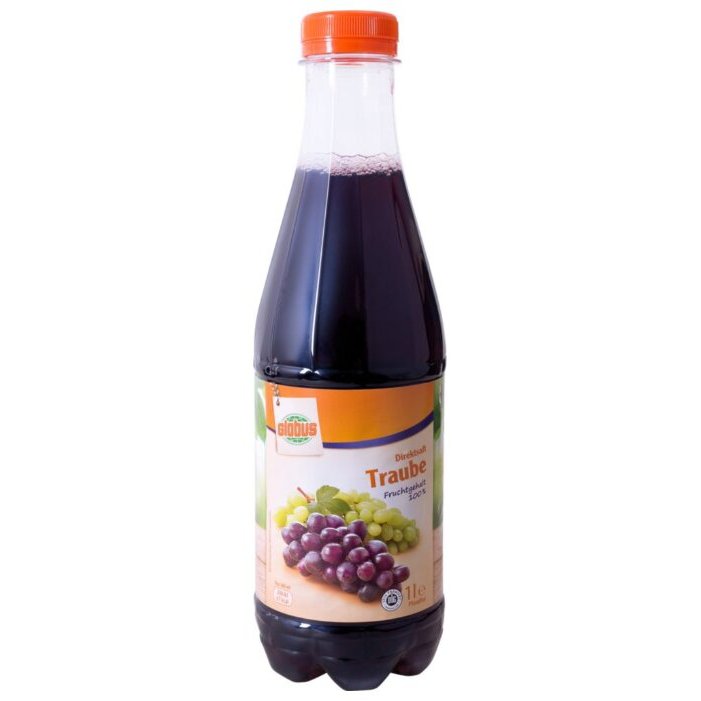
The results of the Globus test (grape) testify to the high quality of this product. The tested microbiological and chemical indicators meet the safety requirements established for this category of goods. The presence of patulin, pesticides and other toxic elements was not revealed. The actual nutritional value validates the labeling.
Has high organoleptic properties, and also contains specific components typical for red grapes. In addition to the above advantages, it differs from similar products by its attractive low price.
| Volume, l | 1 |
| price, rub. | 120 |
- safe products;
- favorable price-quality ratio;
- proven nutritional value.
- absent.
Natur Pur (grape) - closes the top three in the Roskontrol rating
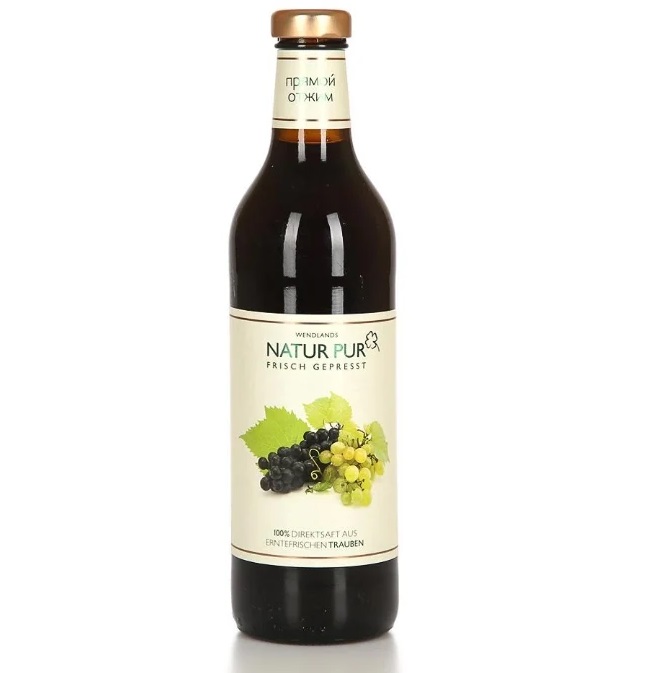
"Natur Pur" (grape) has a natural, well-defined taste and aroma, characteristic of the used fruit, which has undergone heat treatment. There are no foreign tastes and odors. For juice of a direct extraction "Natur Pur" (grape) is also characterized by a dark color uniform throughout the mass and the presence of fractions of anthocyanins characteristic of grapes. No traces of sucrose were found. Citric acid in an amount not exceeding the requirements of the standard.
Among the negative characteristics of the "Natur Pur" (grape) contestant, one should highlight the high (relative to the average values of similar goods) price.
| Volume, l | 1 |
| price, rub. | 469 |
- safe;
- convenient glass container with a screw cap;
- without added sucrose.
- the price exceeds the average values for this product category.
"Lucky" (apple) - the best price / quality ratio
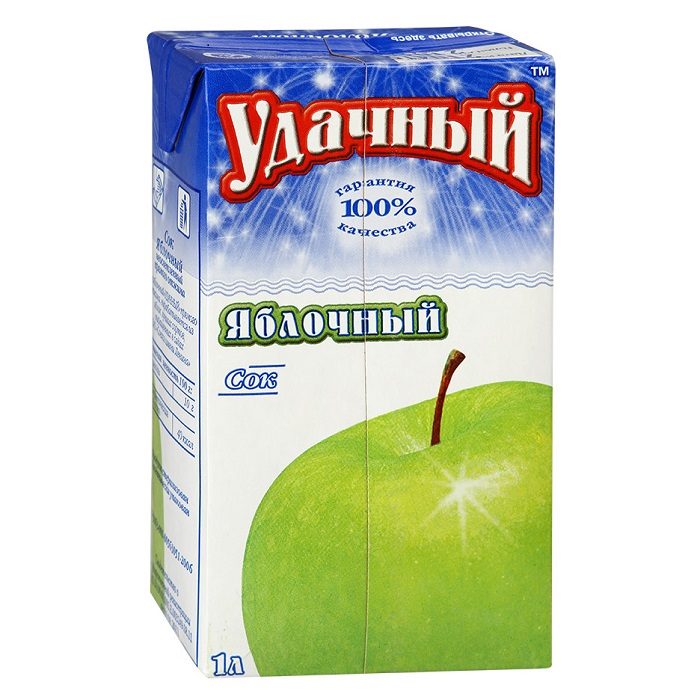
The component composition of the contestant is similar to the compounds found in apples, which indicates its natural origin. Organoleptic characteristics and physical and chemical indicators correspond to the standard. The transparent drink has a natural pronounced apple flavor, without sediment.
The examination revealed a slight deviation from the required ratio of D-glucose / D-fructose - this may indicate the addition of glucose-fructose syrup, but, on the other hand, may be due to the peculiarity of the apple variety. Another minor violation - the low content of ascorbic acid, excludes the possibility of considering the contestant as a source of vitamin C.However, with all the comments, the low price of "Udachny" (apple) allows us to consider it one of the most profitable goods in terms of price and quality.
| Volume, l | 1 |
| price, rub. | 50 |
- natural;
- safe;
- the price for 1 liter is lower than analogues.
- low vitamin C.
"Rich" (grape) is a safe product
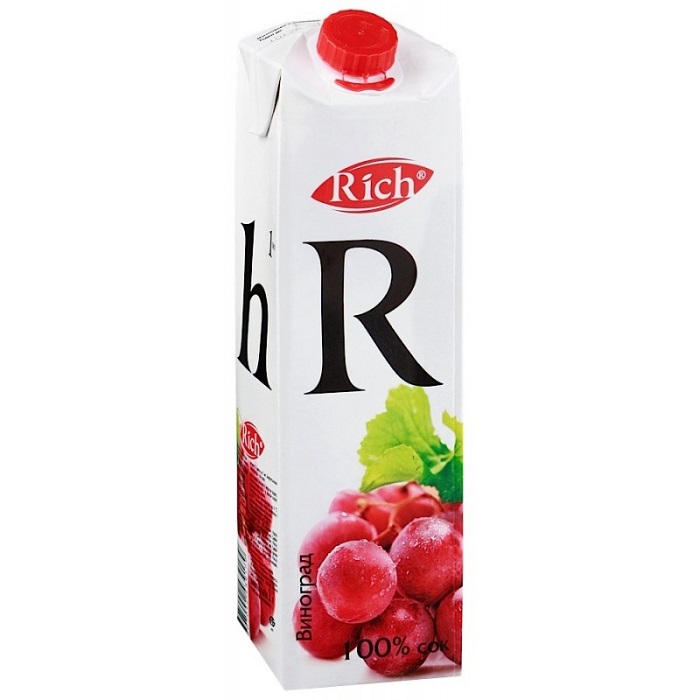
Reconstituted juice "Rich" does not contain nitrates, pesticides, heavy metals, lactic acid microorganisms, as well as yeast and molds. The expert examination confirmed that "Rich" (grape) was produced in compliance with all required technologies. The laboratory found the absence of sweeteners (saccharin, cyclamic acid) and synthetic dyes in its composition. The sugar content is minimal and testifies to its naturalness. "Rich" (grape) does not contain minerals and other extraneous components. The excess of the mass concentration of sodium was not found, which indicates the high quality of the water used for production.
At the final stage of the inspection, the experts revealed a slight difference from the content of citric acid and L-malic acid typical for grape juices. This indicates a possible addition of citric acid, which is not indicated by the manufacturer on the label.
| Volume, l | 1 |
| price, rub. | 104 |
- does not contain sweeteners;
- not diluted.
- citric acid is not indicated in the composition.
"I" (orange) - product with comments

The following facts of inaccurate labeling were revealed: the actual amount of carbohydrates and protein is 12% lower than declared by the manufacturer. Given the high (in comparison with reference data) content of carotenoids, experts do not exclude its artificial addition. The insignificantly present pesticides (difenoconazole, tebuconazole, cypermethrin) in the composition of the contestant do not exceed the permissible standard.
Despite the fact that the manufacturer did not declare the standard according to which "I" (orange) was produced, laboratory tests confirmed its compliance with TR CU 023/2011 and GOST 32103-2013. The sample has a high pulp content and has no comments on organoleptic properties. The organic acids and sugars that make up the juice correspond to a natural orange. The sample has an uncharacteristically low ascorbic acid content.
| Volume, l | 0,97 |
| price, rub. | 85 |
- no preservatives;
- not diluted.
- increased carotenoid content, indicates the likelihood of adding beta-carotene as a coloring agent for beta-carotene;
- low vitamin C levels
"ABC" (tomato) - contains salt

The investigated indicators "ABC" (tomato) meet the safety requirements of TR CU 023/2011. Organoleptic and microbiological properties correspond to GOST 32876-2014, although the product is manufactured in the Republic of Belarus according to the country's own state standard.
Preservatives, nitrates, and flavor enhancers have not been found. Foreign substances, pesticides and toxic elements are also absent. The sample is a homogeneous transparent liquid with evenly distributed finely ground pulp. No facts of inaccurate marking were revealed. Taste and smell characteristic of juice made from tomato paste, tomato puree or tomato juice concentrate.
| Volume, l | 1 |
| price, rub. | 139 |
- high quality and safe;
- free of foreign tastes and odors.
- contains added salt.
"Every day" (tomato) - sugar free
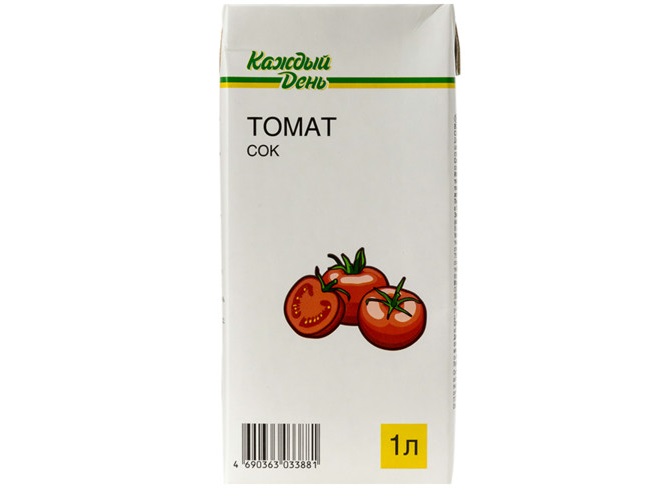
The results of the laboratory test "Every day" (tomato) testify to its safety. The experts did not identify sugar in the composition of the contestant, which was indicated by the manufacturer in the labeling. The labeling was also unreliable in terms of the carbohydrate content, as well as the calorie content of the drink.
The manufacturer did not indicate the standard or TU according to which "Every day" (tomato) is produced, but its external characteristics and safety indicators fully comply with GOST 32876. The nutrient profile of the sample corresponds to the composition of natural tomato juice.The competitor's counterparts are favorably distinguished by its low price.
| Volume, l | 1 |
| price, rub. | 73 |
- no pesticide residues were found;
- does not contain sugar.
- unreliable calorie content.
Juice selection criteria
- Packaging affects the quality of the drink... Choosing a glass container, you can clearly see its contents. However, this storage option does not protect the juice from direct exposure to sunlight. The multilayer cardboard bag is more convenient for transportation and retains all the benefits of the product.
- Shelf life of juice, regardless of the type of packaging is 12 months from the date of production. Open containers should not be stored for more than a day, even in the refrigerator. Juice is a living product and as soon as the integrity of its packaging is violated, it becomes possible for microorganisms to enter it, which will lead to spoilage of the product.
- Aromatic and natural tastemust exactly match the fruit it is made of.
- If you really want to get vitamins from juice, then among all existing types, give preference product marked "direct pressing"... This is the healthiest and most natural option. Choosing 1 liter of a drink called "nectar", you will receive half a liter of diluted juice, to which, in addition to water, acidity regulators and sugar will be added.

